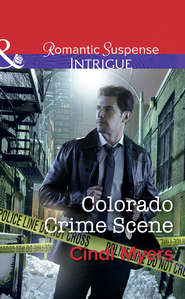По всем вопросам обращайтесь на: info@litportal.ru
(©) 2003-2025.
✖
The Birdman's Daughter
Автор
Год написания книги
2018
Настройки чтения
Размер шрифта
Высота строк
Поля
It was a second chance for them, and how many people got second chances these days?
CHAPTER 3
Even the little sparrow, which flits about by the
roadside, can laugh at us with his impudent little
chirp, as he flies up out of reach to the topmost
branch of a tree.
—Arabella B. Buckley, The Fairy-Land of Science
Casey had never ridden a Greyhound bus before, but it was pretty much the way he’d imagined: tall-backed, plastic-covered seats filled with people who all looked a little down on their luck. They wore old clothes and carried shopping bags stuffed with packages and groceries and more old clothes. They were brown and black and white, mostly young, but some old. The woman in front of him had three little brown-haired, brown-eyed boys who kept turning around in their seats to look at him. Their mother would scold them in Spanish and they would face forward again, only to look back in a few minutes, unable to keep from staring at the white kid all alone on the bus.
At first he’d only intended to see how much it would cost to get from Denver to Tipton, Texas. But when he saw it was only a hundred and thirty dollars and there was a bus leaving in thirty minutes, he’d decided to buy the ticket and go. Mom had sounded so sad and worried on the phone. She was down there all alone with her sick father and nobody to help her, really. He could cheer her up and help, too.
The main thing about traveling on a bus was that it was boring. He spent a lot of time listening to CDs on his portable player and staring out the window. Not that there was much to see—the bus stayed on the interstate, mainly, cruising past fields and billboards and the occasional junkyard or strip of cheap houses. He made faces at the little boys in front of him, until their mother turned around and said something to him in Spanish. He didn’t understand it, but from her tone it sounded as if she was cussing him out or something.
After that, he slept for a while. When he woke up, it was dark, and the bus was stopped at a station. “Where are we?” he asked the man in the seat behind him.
“Salina, Kansas,” he said. “Dinner break.”
At the mention of dinner, Casey’s stomach rumbled. The driver wasn’t anywhere in sight, so he figured that meant they were stopped for a while. He pulled himself up out of his seat and ambled down the aisle, in search of a diner or McDonald’s or someplace to get something to eat.
The bus station was next to a Taco Bell. Casey bought three burritos and a large Coke and ate at a little table outside. He thought he recognized a couple of other people from his bus, but they didn’t say anything. They all looked tired or worried. He decided people who traveled by bus weren’t doing it because they wanted adventure or a vacation, but because it was the cheapest way to get to where they needed to be.
When he got back on the bus, the seat he’d been sitting in was occupied by a thin guy with a shaved head. He had red-rimmed brown eyes that moved constantly. He looked at Casey, then away, then back again. Casey tried to ignore him, and searched for another seat, but the bus was full.
So he gingerly lowered himself into the seat next to the young man. “Hey,” he said by way of greeting.
The guy didn’t say anything. He just stared. He was skinny—so skinny his bones stuck out at his wrists and elbows and knees, like knobs on a tree limb. His plaid shirt and khaki pants still had creases in them from where they’d been folded in the package, and he wore tennis shoes without laces, the kind skateboarders used to wear five or six years ago.
The bus jerked forward and Casey folded his arms across his chest and slumped in his seat. It was going to be harder to sleep without the window to lean against, but he guessed he could manage it. Sleeping made the time pass faster, and he had the whole rest of the night and another day before they reached Tipton.
“What’s your name?”
His seatmate’s question startled him from a sound sleep. He opened his eyes and blinked in the darkness. The only light was the faint green glow from the dashboard far ahead, and the headlights of passing cars. He looked at the man next to him. “My name’s Casey. What’s yours?”
“My name’s Denton. Denton Carver.”
“Casey MacBride.” Casey offered his hand and the man took it. His grip was hard, his palm heavily calloused. For someone so skinny, he was really strong.
“Where you goin’?” Denton asked.
“To Tipton, Texas. My mom’s there, looking after my Grandpa, who’s sick.”
“That’s too bad.” Denton didn’t look all that sorry, though.
“Where are you going?” Casey asked.
“Not sure, yet. Thought I’d get off in Houston and look around. I used to know some people there.”
“So you’re just, like, taking a vacation?” Maybe he’d been wrong about the people on the bus.
“You might say that.” Denton grinned, showing yellow teeth. “I just got out of prison.”
Casey went still. He told himself not to freak out or anything. He kept his expression casual. “I guess you’re glad to be out, huh?”
Denton laughed, a loud bark that caused people around them to stir and look back. “I’m glad to be shed of that place, all right,” he said.
Casey wondered what he’d been in prison for, but knew enough not to ask. He settled back in the seat and crossed his arms again. “Good luck in Houston,” he said.
He closed his eyes, figuring Denton would get the message, but apparently once the skinny man had decided to talk, he wasn’t interested in stopping. “I used to have a girlfriend in Houston. Her name was Thomasina. Kind of a weird name for a girl, but she was named after her daddy, Thomas. She was a big, tall girl, and she could hit like a man. She worked at this little store her daddy owned and once these two dudes tried to rob the place. She punched one guy in the nose and hit the other one upside the head with a can of green beans. He tried to run and she just wound up and threw that can at him. Knocked him out cold.”
Casey stopped pretending to sleep, and laughed. “I wish I could have seen that.”
“Thomasina was something.” Denton shook his head. “Maybe I’ll look her up while I’m in Houston.”
“You should do that. I bet she’d be glad to see you.”
Denton was still shaking his head, back and forth, like a swimmer who had water in both ears. “I guess you got somebody coming to meet you at the station when you get to wherever it was in Texas you said you was going,” he said.
“Uh, yeah. Sure. My mom will come get me.” He hadn’t exactly thought that far ahead. He hadn’t told anyone he was going to do this—not his mom, or his dad, either. Maybe at the next stop, he’d look for a phone and call home, just so his dad wouldn’t worry. Then when he got to Tipton, he’d call Grandpa’s house and let Mom know he’d arrived.
“Ain’t nobody coming to meet me.” Denton pressed his forehead against the window and stared out into the darkness. “I done my time and the state turned me loose. They gave me one new suit of clothes and a bus ticket to wherever I wanted to go, and that’s it.”
“That’s tough.” Casey didn’t know what to say. He wondered if he could pretend to go to sleep again.
Denton raised his head and looked at him again. “You got any money, kid?”
The hair rose up on the back of Casey’s neck and his heart pounded. Denton didn’t have a gun in his hand or anything, but the way he said those words, you just knew he’d said them before when he did have a weapon.
“I got a little,” he mumbled. He had a little over thirty dollars in his billfold in his backpack. Enough to buy meals the rest of the trip, he guessed.
“I saw you eating dinner when we stopped back there, so I figured you had money. You ought to give me some money so I can buy some dinner. You ought to help out a fellow traveler.”
Casey wondered if Denton was telling the truth. Would the state turn somebody loose with no money in his pocket? That seemed like a sure way for someone to end up back in jail really quick. Maybe Denton was just trying to scam him.
“When we stop again, I’ll get some food and we can share it,” he said. He fought back a grin, proud of the way he’d handled the issue. But then, he’d always been good at thinking on his feet. It was another talent he knew would come in handy throughout his life.
Denton grunted, apparently satisfied with this answer. He rested his head against the window and closed his eyes and was soon snoring.
Casey slept, too. The rocking motion of the bus and the darkness, punctuated by the whine of passing cars and the low rumble of the bus’s diesel engine, lulled him into a deep slumber. He dreamed he was wandering through the streets of Tipton, searching for his grandfather’s house, unable to find it.
When Karen returned from the grocery store, the aide, an older black woman named Millie Dominic, met her at the door. “Mr. Martin is carrying on something fierce, but I can’t figure out what he wants,” she said.
Karen dropped the bags of groceries on the kitchen table and ran to her father’s bedroom. He was sitting up on the side of the bed, one foot thrust into a scuffed leather slipper, the other bare. When he saw her, he let out a loud cry and jabbed his finger toward the chair. “I asked him if he felt up to going outside for a walk and he roared at me,” Mrs. Dominic said.











